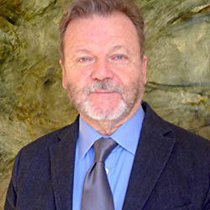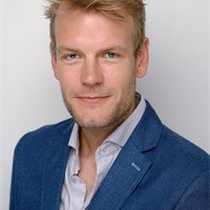What is the potential market share of Mobility as a Service (MaaS) under different conditions? Will on-demand services scale up? And how can that be achieved? How will such new services co-exist with conventional public transport? Will they compete or complement each other? Does this mean we will end up having more congestion? How should public transport evolve in response to this changing landscape? What is the role of policymakers to ensure meeting societal goals related to accessibility and equity?
Join us in the discussion on the issues above during MaaS@AMS - Sharing the Future of Urban Mobility, October 21st 12.00-17.00h. With the participation of amongst others City of Amsterdam, Uber, ViaVan, and University College London. During the event we will also be kicking-off the CriticalMaaS project. Please find the full program below.
This event is intended for professionals and academics working in the field of urban mobility.
Please register here>>
Program
12:00 Lunch
12:45 Welcome (Oded Cats, AMS Institute & TU Delft)
13:00 Luis Willumsen, University College London
Civilising MaaS and Connected Autonomous Vehicles
13:30 Santosh Rao Danda, Uber
A dive into Uber as a mobility platform
14:00 Yariv Hauer, ViaVan
The Public Mobility Operating System
14:30 Finn van Leeuwen, City of Amsterdam
Principles, pitfalls and practicalities of MaaS (Zuidas): a government perspective
15:00 Coffee/tea break
15:30 Break-out sessions
16:45 Closing remarks
17:00 Drinks
Break-out sessions
Sessions are led by members of the Smart Public Transport Lab, TU Delft
I. The Market Potential of Pooled On-Demand Services: Understanding the Passenger’s Perspective
Pooled on-demand services (such as UberPOOL, ViaVan, and LyftLine) can improve urban mobility, while providing flexible tailored solutions to their users. It sounds promising, but are individuals willing to use such services? Understanding people’s preferences and behaviour regarding pooled on-demand services is crucial for their success.
In this interactive session, we will engage attendees in discussing passenger-related questions concerning these services, and provide first research insights from the Dutch context. We will both consider the characteristics of pooled on-demand services (price-time trade-offs and willingness to share trips), and the role of these services in the urban mobility mix.
II. Dynamics of Mobility-on-Demand Services through an Interactive Game
One of the main characteristics of Mobility-on-Demand (MoD) services is the interaction between demand and supply leading to a two-sided market situation. This has implications for how emerging MoD services will evolve.
In this breakout session, we will play an interactive day-to-day learning game in which you are representing the Amsterdam traveler by making travel choices on consecutive days based on the alternatives that are proposed to you in a multimodal setting. Using the results of the experiment, we will discuss the effect of congestion, pricing strategies and economies of scale on the market share of MoD.
III. Operating Autonomous Public Transport: A MaaS-Perspective
Traditional line/schedule based public transport plays an important role in mobility of people in urban areas. However, the launching of MaaS-schemes and innovative mobility solutions cause changes in the ways people travel. Do such changes also require a change in traditional public transport? Does public transport have to be more flexible in a MaaS-context? What does MaaS mean for PT operators? What will be the challenges that operators of public transport services face to keep up with MaaS-schemes?
Join us for an engaging debate on what MaaS means for public transport operations/operators, which we will kick off with insightful simulation results of self-driving vehicles deployed for public transport services and round up with discussions in small groups to share thoughts and experiences.
IV. Exploring the World of Ride-Sourcing Drivers in the Era of Mobility-as-a-Service (MaaS)
In the age of the Gig economy and ride-sourcing services like Uber, ViaVan, etc. getting popularized, some of the forgotten men and women are the drivers. In this gig economy, it is equally important to take into consideration the drivers’ role in a ‘customer is king’ era, in order to have a sustainable service.
Here, we provide a platform to discuss the drivers’ perspectives of the ride-sourcing operations. To this end, we start with a small talk on leveraging data to understand driver's choices, shift habits and their impacts on supply availability. This leads to an open discussion about drivers’ challenges, needs, and expectations followed by take-aways from focus groups that we have conducted with a group of drivers. And finally, together, we are going to tackle the issues raised by the drivers in order to provide them with a healthy and happy work environment.
Speakers
Luis Willumsen | University College London
Dr. Luis Willumsen has over 35 years of experience as a consultant, transport modeller and planner. He is an internationally recognised authority in Transport and Traffic modelling. He is co-author of “Modelling Transport” a book published by Wiley and now in its fourth edition. He has also published “Better Traffic and Revenue Forecasting”, dealing with the critical task of delivering demand and revenue projections for transport concessions. He was a researcher and lecturer at Leeds University and University College London. He was a Board Director of Steer Davies Gleave for 20 years leaving in 2009 to develop his own consultancy. He is Director of Willumsen Advisory Services and of Nommon- Kineo, a company specialised in the use of smartcard and mobile phone data to deliver useful transport insights. Through both companies he has focussed his work on the future impact of new mobility and how best to deal with the associated uncertainties and risks. He is also Visiting Professor in the Department of Civil, Environmental & Geomatic Engineering at University College London.
“My talk will be on Civilising MaaS and Connected Autonomous Vehicles”
Luis Willumsen | Lecturer at University College London

Santosh Rao Danda
Santosh Rao Danda is a Research Scientist on Uber’s Research & Economics team based in Amsterdam. In his time at 3+ years at Uber he has worked on multiple projects around the world trying to understand and quantify the impact of Uber’s products on the larger world. His research interests include multimodal travel behavior, impact of ridesharing on existing infrastructure and built environment, quantifying the welfare impact of ridesharing and better understanding driver-partners and their motivation.
Santosh has been working in the field of transportation for the past 6 years. Prior to joining Uber, he worked for Steer Group in Boston. He holds a Masters in Transportation Economics from Texas A&M University and a Bachelors in Civil Engineering from the Indian Institute of Technology Guwahati.
“Join my talk for a dive into Uber as a mobility platform”
Santosh Rao Danda | Research Scientist at Uber
Yariv Hauer | ViaVan
Yariv Hauer is the General Manager of ViaVan Amsterdam, where he oversees all business and operational activities of ViaVan in the Amsterdam region. Prior to his work at ViaVan Yariv was a manager at the strategic consultancy firm Bain & Co in Amsterdam focusing on Tech, Consumer Products and Private Equity. In his academic background Yariv is a software developer and has graduated his MBA at IESE business school in 2012.
“Looking forward to telling you more about the public mobility operating system, and how we approach it at ViaVan”
Yariv Hauer | General Manager at ViaVan

Finn van Leeuwen | City of Amsterdam
Finn van Leeuwen has been working for the City of Amsterdam as a project manager in urban development for almost ten years after working for the Ministry of Infrastructure for a few years before that. The last five years of which on the development of the Zuidas and focused mainly on transport and mobility. During that time the government focus has strongly shifted from mainly infrastructure to nudging and influencing human behavior, to create a more livable and attractive city. Working together with big employers, other layers of government and market parties, a design contest to create a MaaS-service aimed at corporate travelers has been organized and tendered. The service is set to start servicing beta-users at the end of this year, and should be ready for a public launch halfway next year. That means the government focus is shifting towards the success factors and necessary rules and regulations (technical, legal, business and policy) to make MaaS a long term success.
“Join my talk if you're interested in hearing more about the principles, pitfalls and practicalities of MaaS at Zuidas, from a government perspective”
Finn van Leeuwen | Project Manager Urban Development at City of Amsterdam

Please register for this event here>>

Event partners